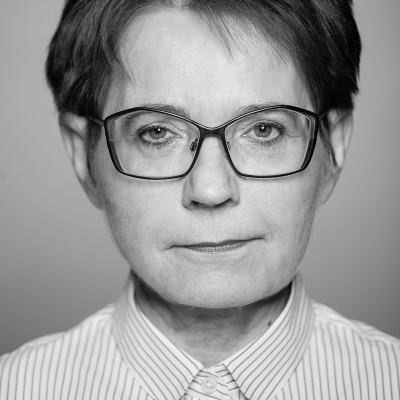Scientific advice in clinical trials
Parliamentary work on Poland’s draft Act on Clinical Trials of Medicinal Products for Human Use is coming to an end. According to the bill, entities involved in clinical trials and introduction of new drugs will be able to receive scientific advice from the president of the Office for Registration of Medicinal Products, Medical Devices and Biocidal Products. This will enable better preparation of tests and trials and consequently faster registration of safe and effective drugs.
The bill is intended to ensure proper application in Poland of the EU’s Clinical Trials Regulation (536/2014). A number of changes and additions were made to the original draft published in April 2021. One of the new solutions is the possibility for interested entities involved in clinical trials and introduction of new drugs to obtain scientific advice from the regulator, i.e. the president of the Office for Registration of Medicinal Products, Medical Devices and Biocidal Products (URPL).
This possibility has been called for by industry organisations for several years, as it works well in other EU countries. And outside of Europe, such scientific advice is also provided by the US Food and Drug Administration, as well as the Japanese regulator.
Scientific advice provided by the EMA
The possibility for the European Medicines Agency to provide scientific advice in the process of trials on new molecules and drugs was introduced by Regulation (EU) 726/2004. The scope of advice is strictly defined and covers a variety of tests and attempts to demonstrate the quality, safety and efficacy of tested medicinal products. The EMA now also provides “protocol assistance” for orphan drug trials.
According to the procedure for scientific advice developed at the EMA, an entity interested in scientific advice must submit an application containing:
- Basic information about the development work on a particular drug
- Questions for which it seeks answers
- The applicant’s own reasoned position on the issues raised.
The answers to the questions are prepared by a team of EMA experts, possibly with the help of external experts and sometimes with patients’ participation.
The advice obtained allows researchers to take the correct direction for drug research. However, the advice does not in any way evaluate the risk/benefit ratio associated with use of the drug under development or the results of studies to date. Seeking advice from the EMA on issues related to quality or clinical and non-clinical aspects in new drug research does not affect the subsequent evaluation of the drug in the marketing authorisation process, but it can speed up the research process and lead to faster registration of a safe, effective, quality new drug.
A study by the EMA found that the number of negative decisions in the marketing authorisation procedure is noticeably lower in proceedings where the developers sought the EMA’s scientific advice than in those where they did not use this option.
Draft regulation of scientific advice in the URPL Act
The new institution of scientific advice is regulated in the proposed the new Art. 4a to the URPL Act in Poland, modelled on EU solutions.
Art. 4a(1) strictly defines on what matters and in what situations an interested party may request scientific advice: “The President of the Office is also tasked with providing scientific advice on the conduct of tests and trials necessary to demonstrate the quality, safety or efficacy of medicinal products for human use, regarding qualitative, clinical or non-clinical aspects, medicinal product safety supervision or methodological issues involving ongoing or planned trials (‘scientific advice’).”
Art. 4a(2) states when the regulator must refuse to provide scientific advice. This will happen when the answer to the question can be found in generally applicable provisions or guidelines issued by European or global organisations or also due to specific factual situations in which a conflict of interest could arise.
Scientific advice is to be given in writing within 90 days of the submission of a complete application, in accordance with the requirements established by the foregoing provision, on the form attached to the planned regulation of the Minister of Health detailing the formal requirements.
For providing scientific advice, a fee of PLN 13,200 must be paid for each of the areas of scientific advice. These can only be issues concerning:
- Quality of a medicinal product
- Non-clinical trials
- Clinical trials, or
- Safety surveillance on the application of a medicinal product.
If the scientific advice is to address two or more issues, the fee is correspondingly higher, up to a maximum of PLN 52,800.
An opportunity for innovators and smaller centres
Scientific advice can be used by entities conducting trials on molecules and drugs, but, as the EMA’s experience shows, it can be particularly helpful to those developing innovative drugs, where the published guidelines, handbooks or pharmacopoeia monographs do not contain the information they are looking for. Scientific advice can also greatly help researchers who are going beyond scientific guidelines in their research.
Scientific advice can be useful for researchers from academia or SMEs with limited knowledge of the current regulations. It seems that in the Polish reality, scientific advice may be most widely sought by SMEs, but there should also be no shortage of requests by innovators.
The Polish parliament has high hopes for the introduction of scientific advice in clinical trials. Lawmakers point out that well-prepared documentation, including the results of properly planned and conducted tests and trials (to which scientific advice is expected to contribute) can help cut the evaluation period for a new drug and as a result accelerate the registration of safe, quality drugs. This could stimulate Polish drug developers and attract more entities from other countries interested in registering medicinal products in Poland.
Dr Ewa Butkiewicz, Life Science & Healthcare practice, Wardyński & Partners
